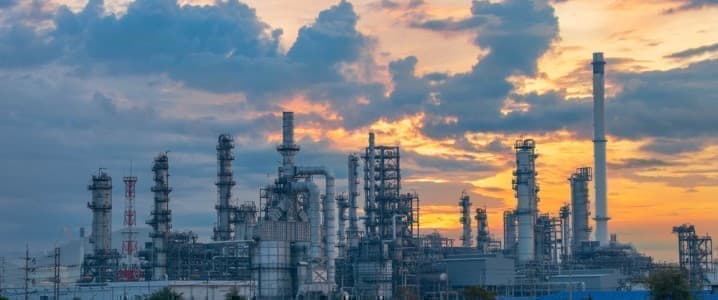Gasoline prices in the United States have recently dipped, with diesel prices falling to their lowest in 900 days. While this offers temporary relief for consumers, a looming change in Canada's oil policy could disrupt the supply chain, particularly for U.S. refineries dependent on heavy crude oil imports.
Canada's Emissions Cap Proposal
Prime Minister Justin Trudeau has proposed a cap on emissions for the oil and gas industry to align Canada's environmental policies with its climate commitments. This cap is anticipated to limit production and raise operational costs for Canadian oil producers. A Deloitte report, commissioned by Alberta, suggests that without a cap, Canadian oil production could continue to rise, but the cap may stall or reduce output, affecting the overall supply.
U.S. Refining Capacity
The U.S. Energy Information Administration (EIA), pegs total U.S. oil refining capacity at 18.4 million barrels per day. The U.S. is the world's largest refiner, and Canadian crude oil accounted for 24% of all its refinery throughput in last year, and is essential for U.S. energy security.
U.S. Dependence on Canadian Crude
Canada plays a crucial role in supplying crude oil to the United States, especially for refineries in the Rocky Mountain and Midwest regions. In fact, many U.S. refineries are specifically tooled to process the heavy oil found in Canada's oil sands. The refineries in these specific regions, according to the U.S. Energy Information Administration (EIA), continue to process heavier grades of crude oil, which are becoming less prevalent in other regions due to the trend toward lighter crude oil processing. This reliance is evident in the crude oil import data, where Canada consistently tops the list of U.S. suppliers, providing over 3.8 million barrels per day according to annual EIA data.
Global Heavy Crude Oil Sources
Apart from Canada, other significant heavy crude oil suppliers include Venezuela, Brazil, and Iraq. However, geopolitical and logistical challenges make these sources less reliable. Venezuela faces sanctions and infrastructural challenges, while Brazil and Iraq have fluctuating production rates and export capabilities. Thus, Canada's stable and politically secure oil supply is critical for U.S. refineries.
Venezuela, Russia, and Iraq—all producers of heavy oil—pose logistical, security, and optical challenges for the United States. In Venezuela's case, sanctions, industry mismanagement, and corruption have impeded its ability to produce and export its heavy crude. Russia's crude oil exports are limited by a Western-imposed price cap. Iraq's oil industry is still wildly unstable.
Implications of Reduced Heavy Crude Supply
A reduction in Canadian heavy crude supply could lead to increased competition for heavy crude from other sources, driving up prices and impacting refinery margins. This might lead to higher gasoline and diesel prices in the U.S. market. A shortage could also compel refineries to adapt their operations or invest in infrastructure to process lighter crude, which could be costly and less efficient.
Heavy crude oil is essential for producing a range of refined products, including gasoline, diesel, and jet fuel, as well as lubricants and petrochemicals. Processing heavy crude requires specialized equipment and expertise, which many U.S. refineries have invested in over time. These upgrades provide a competitive advantage but also come with significant costs.
The potential curtailment of Canadian oil production poses not only an economic threat but also raises environmental concerns. A decrease in heavy crude oil supply could lead to an increased reliance on lighter crude, which may not align with current refinery setups. Going lighter would also result in lower profitability as lighter crude comes with a higher price tag.
Moreover, this shift could affect the global oil market, influencing pricing and supply dynamics. The U.S. refineries' need to secure heavy crude oil could lead to heightened geopolitical tensions as they vie for resources in a tightening market.
ADVERTISEMENT
The resulting high refiner costs would then trickle down to industry.
Canada's proposed emissions cap on the oil and gas sector presents a complex challenge for U.S. refineries and the broader oil market. As Canadian production potentially dwindles, U.S. refineries must prepare for a shift in supply dynamics that could disrupt operations and affect the national economy.
By Julianne Geiger for Oilprice.com
More Top Reads From Oilprice.com
- Aluminum Prices Continue to Slide
- Global Nuclear Power Sees Modest Growth, but Challenges Remain
- Is the Era of Explosive U.S. Shale Growth Over?



















Oil will not be damaged by the cap. Certainty and common framework is what business needs. There are many ways to reduce the PRODUCTION emissions at a reasonable cost. The fantasy of carbon capture would cost a LOT more and be much less effective.